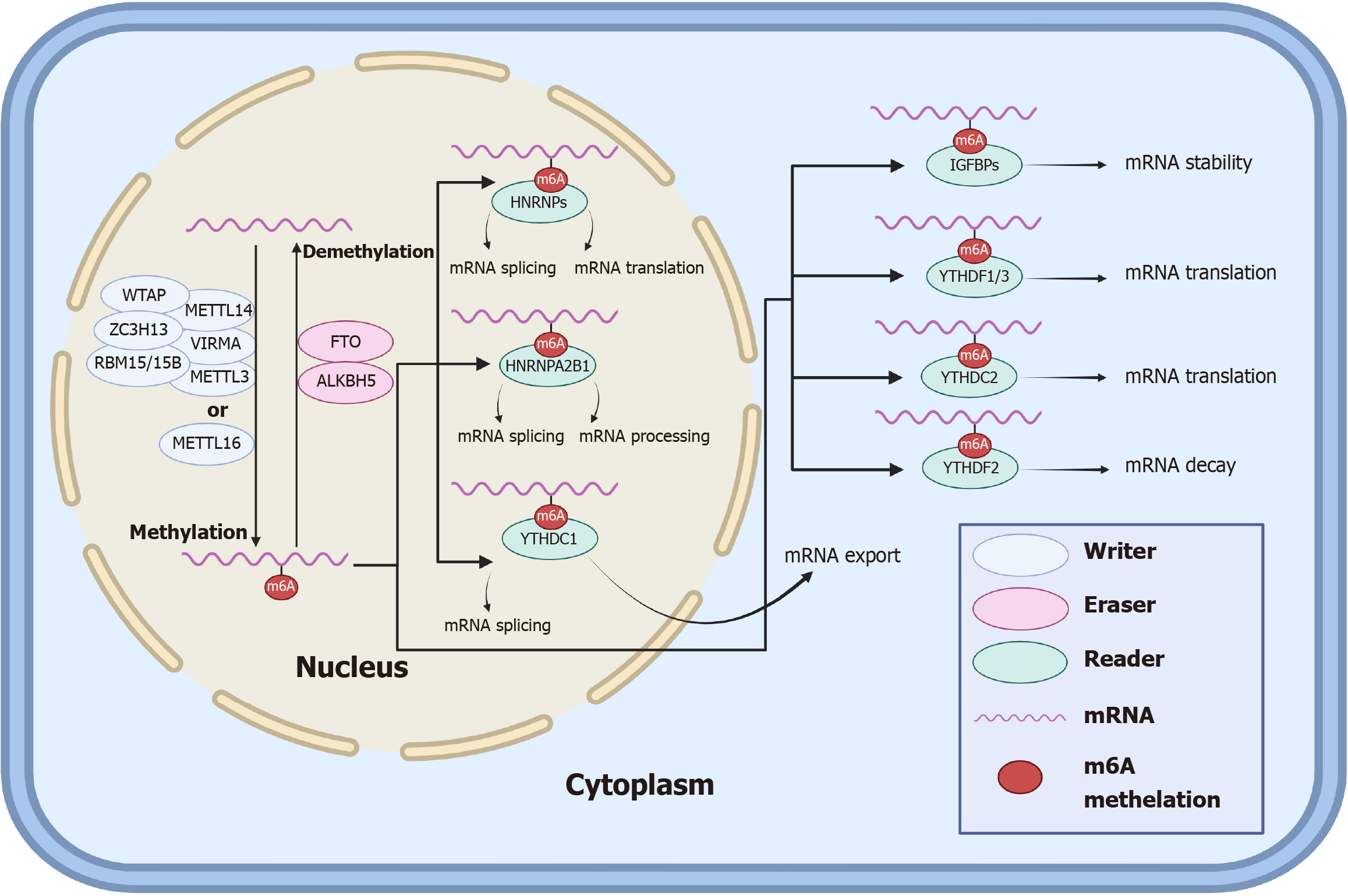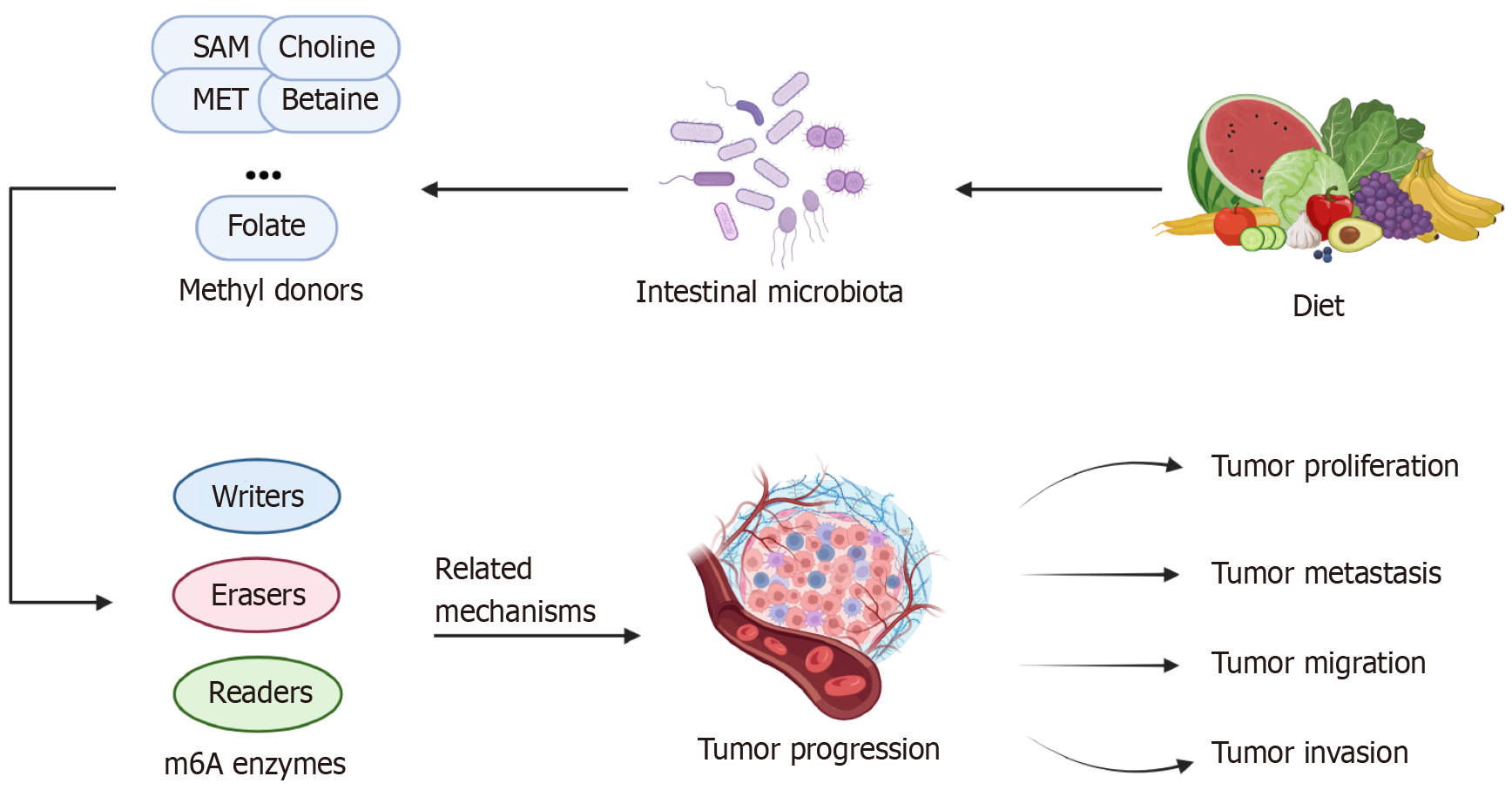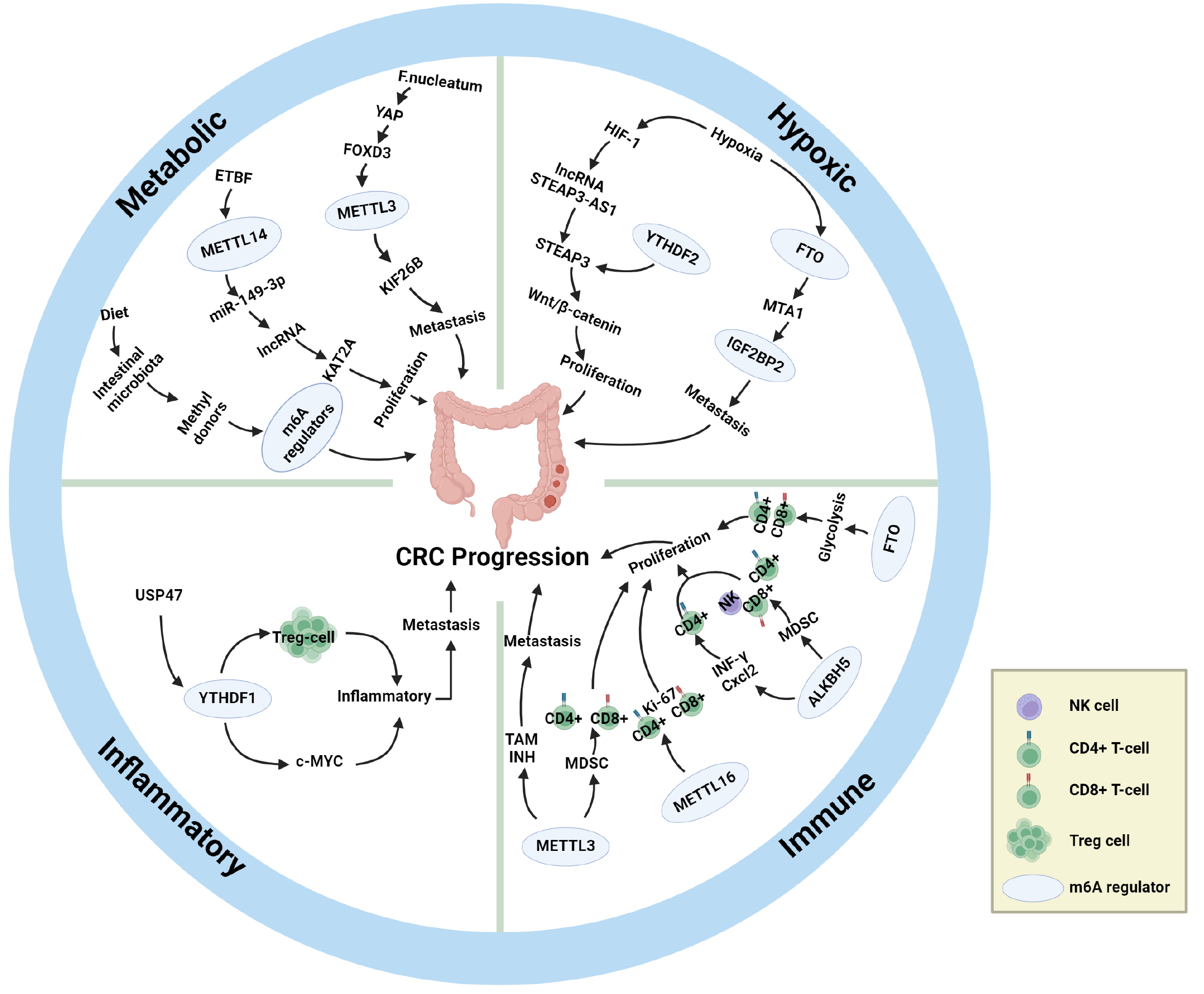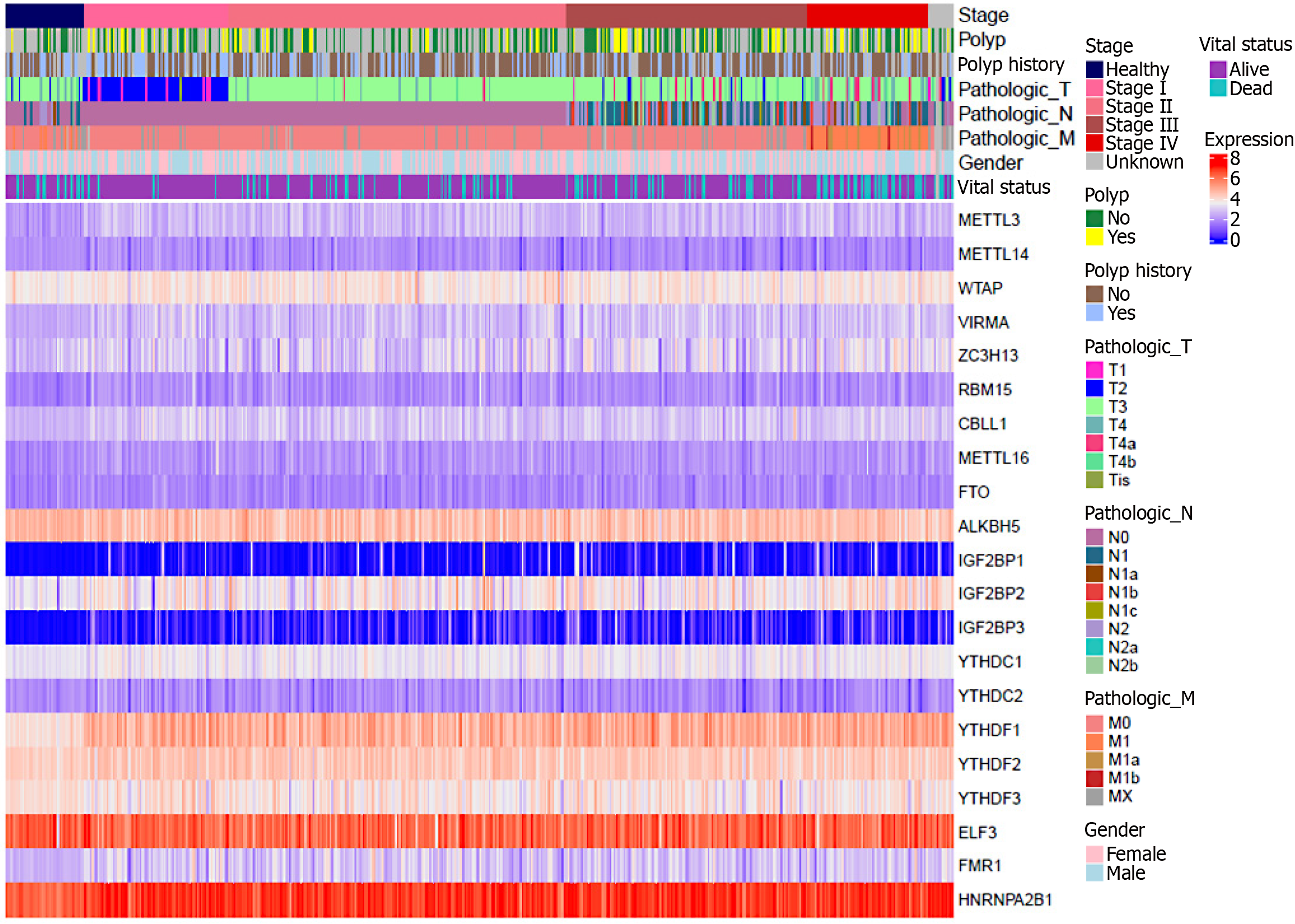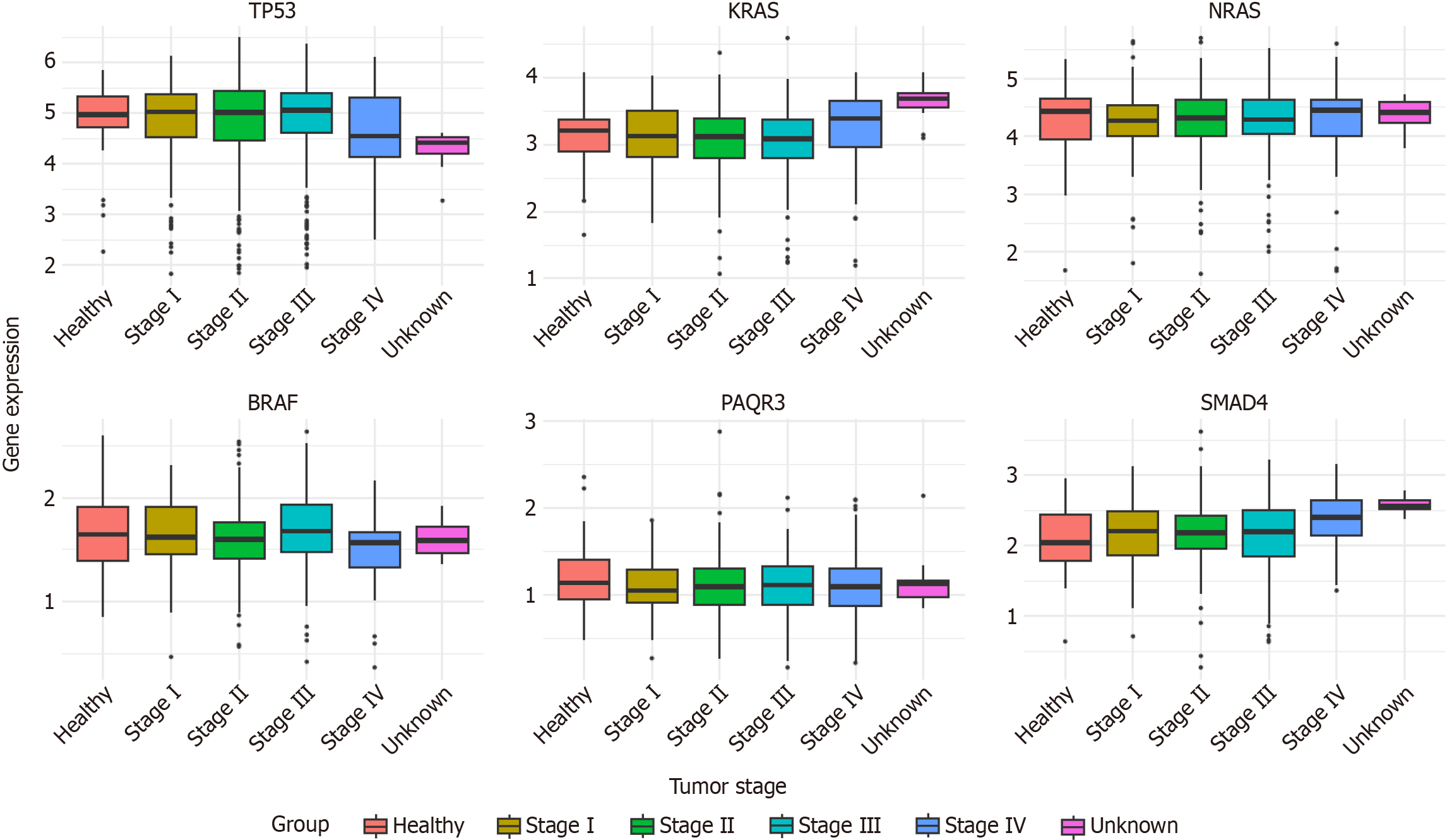Copyright
©The Author(s) 2024.
World J Gastroenterol. Oct 14, 2024; 30(38): 4175-4193
Published online Oct 14, 2024. doi: 10.3748/wjg.v30.i38.4175
Published online Oct 14, 2024. doi: 10.3748/wjg.v30.i38.4175
Figure 1 N6-methyladenosine modifications occurring on RNA.
m6A: N6-methyladenosine. Created with BioRender.com (Supplementary material).
Figure 2 Diet and other environmental factors can provide nutrients for the gut microbiota to metabolize, which can affect the levels of their metabolites (various methyl donors), leading to changes in the level of N6-methyladenosine methylation in the host and ultimately triggering the occurrence of colorectal cancer, as well as the proliferation, metastasis, migration and invasion of tumours.
SAM: S-adenosylmethionine; m6A: N6-methyladenosine. Created with BioRender.com (Supplementary material).
Figure 3 A summary of the role of N6-methyladenosine in the occurrence and development of colorectal cancer among the four tumour microenvironment factors discussed in the text.
CRC: Colorectal cancer; HIF-1: Hypoxia-inducible factor-1; SAM: S-adenosylmethionine; m6A: N6-methyladenosine; MDSC: Myeloid-derived suppressor cell; F. nucleatum: Fusobacterium nucleatum. Created with BioRender.com (Supplementary material).
Figure 4
To analyze the correlation between different N6-methyladenosine regulators and colorectal cancer progression.
Figure 5
To analyze the correlation of different oncogenes/tumor suppressor genes with colorectal cancer progression.
- Citation: Jiang TQ, Wang H, Cheng WX, Xie C. Modulation of host N6-methyladenosine modification by gut microbiota in colorectal cancer. World J Gastroenterol 2024; 30(38): 4175-4193
- URL: https://www.wjgnet.com/1007-9327/full/v30/i38/4175.htm
- DOI: https://dx.doi.org/10.3748/wjg.v30.i38.4175









